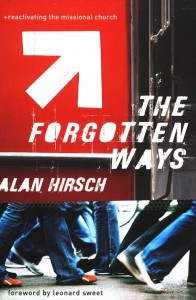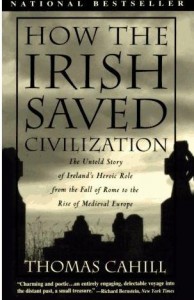 Check out part 1 of my thoughts on Hirsch’s The Forgotten Ways here.
Check out part 1 of my thoughts on Hirsch’s The Forgotten Ways here.
Reading through chapter 3, I found myself almost giddy considering the simple core truth of the Christian faith: Jesus is Lord. Tradition is nice. Theology is helpful. But the core element that catalyzed the first century Jesus movement, is spreading throughout China and has been at the center of all great Jesus movement is the life changing confession that Jesus is Lord.
Hirsch unpacks just how powerful this would be in a polytheistic society, where one is living in constant fear of upsetting one deity or another. He compares this to the false claim of Communist state as Lord, as well as exposing America’s own polytheism, the worship of money, power, health, etc.
He also points out the tendency of Christians to a dangerous syncretism. His example of how the false god of comfort and power got mixed up with the Church in South Africa to create apartheid is a chilling reminder of what could happen to us.
Chapter 4 makes the argument that powerful Jesus movements are little more than disciple making systems. He quotes Neil Cole of Church Multiplication Associates saying “we want to lower the bar of how Church is done and raise the bar of what it means to be a disciple.”
The primary barrier to disciple-making is consumerism, both inside and outside the church. Our culture is set up to make us disciples of consumerism, we consume food, art, and even identities. We take this mindset with us, expecting to be “fed” at church.
Secondly, our current system of religious education also inhibits disciple-making. Unlike Jesus disciples, who met with him day in and day out, we remove a select few and pump them full of book learning, then return them to the church. This may help them learn how to think, but it often does little to help them live more like Jesus, and lead others to do the same.
Hirsch’s accusations are clear: we have added so much to the gospel and so much to the way we teach about Jesus, that it impossible for our current way of being church to spread.
What do you think? Have you seen a simpler, more effective Church?











 Tweets
Tweets